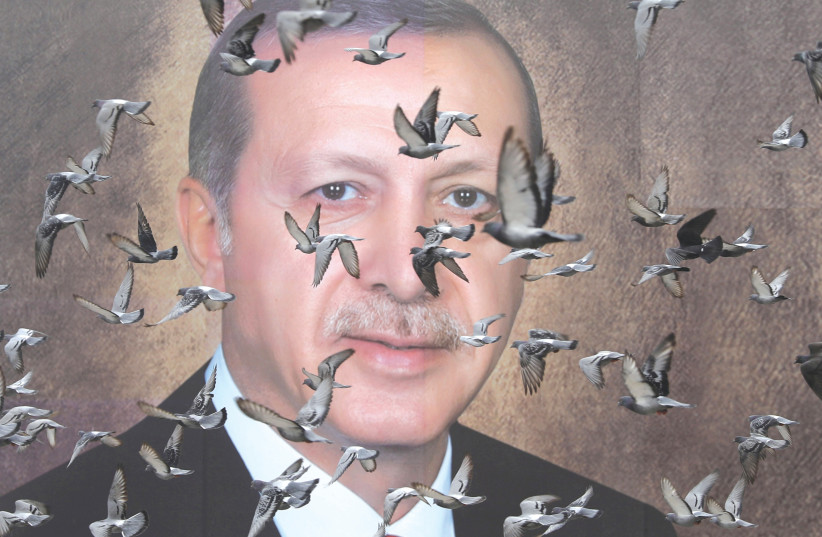President Isaac Herzog will become the first Israeli leader to visit Ankara since 2008 when he jets off to a two-day visit to Turkey on Wednesday at Turkish president Recep Tayyip Erdogan's request.
What should we expect from the rare, high-profile visit to Turkey and what consequences will rejuvenated relations between Ankara and Jerusalem have on the Middle East as a whole and on Israel in particular?
Dr. Alon Liel, a former ambassador to Turkey and Foreign Ministry director-general, spoke to 104.5FM on Sunday to explain.
Turkish courtship
Erdogan, who heavily pushed for stronger diplomatic relations with Israel in recent months, has been "courting Israel for over a year now," Liel said. "I have been seeing this vigorous Turkish courtship for over a year...I think it is quite obvious that [Israel] did not respond to this courtship."
The Turkish president's renewed interest in the Jewish state was met with a great deal of mistrust by Israel, the former ambassador stated, adding that it even came to "mutual hostility..we simply did not believe Erdogan."

The change came, Liel said, when Herzog was sworn in as Israel's new president in July of last year.
When Natali and Mordi Oaknin were imprisoned in Turkey for photographing Erdogan's home, it was the diplomatic efforts of the president with Erdogan who ensured their release after a week in a Turkish jail.
After the Israeli couple returned home, Herzog called Erdogan, expressed hope for warmer diplomatic ties between the two countries and thanked Erdogan “for his personal involvement and contribution” to their release.
Their second phone call in Herzog's short tenure as president, the former Jewish Agency head called him for the third time in February, wishing Erdogan a speedy recovery after it was announced he tested positive for COVID-19.
"Over the last few months, Herzog started believing...He convinced the entire establishment to give it a try and here we go."
Regional isolation
Erdogan made a "series of regional, even global, mistakes," Liel claimed. "These mistakes left him in a state of regional isolation."
"That regional isolation also badly affected his economy," the former ambassador said, referencing the Turkish economic crisis of late 2021 when the Turkish lira slid to a new record low. "Erdogan felt he had to escape this isolation."
Israel's efforts to increase cooperation with Middle East partners, specifically the signing of the Abraham Accords with nations such as the United Arab Emirates (UAE) and Bahrain, also played a part in Erdogan opening his country's doors to Herzog, Liel stated.
"At the same time Erdogan was sliding, Israel began to flourish on the regional stage with the Abraham Accords," Liel explained. "Erdogan realized that, in the Middle East pyramid, Turkey is lower down than Israel. So he threw a rope, hoping someone would catch it."
Nothing to lose
Can Israel build on Erdogan and Herzog's apparent friendship for better relations with Turkey? according to Liel, Israel has nothing to lose.
There are several areas where gains can be made, Liel says. "After all, Turkey is still a big country, in an economic sense."
"We can make our economic gains, we can also make gains in Syria," Liel explained.
If Herzog's visit reignites warm relations between Turkey and Israel, it could also have major diplomatic consequences in the Middle East. "There's a lot to gain by influencing Turkey to join Israel's side, opposite the Iranian-Qatari axis," Liel analyzed.
"I think we have nothing to lose. In the current state of play, we have our hands on the tap. Erdogan courted us, we opened the tap."
Now, ahead of Herzog's important presidential visit, Israel will test the seriousness of the Turkish courtship. "If we find that Erdogan does not match our expectations or keep his promises, we'll close the tap."
